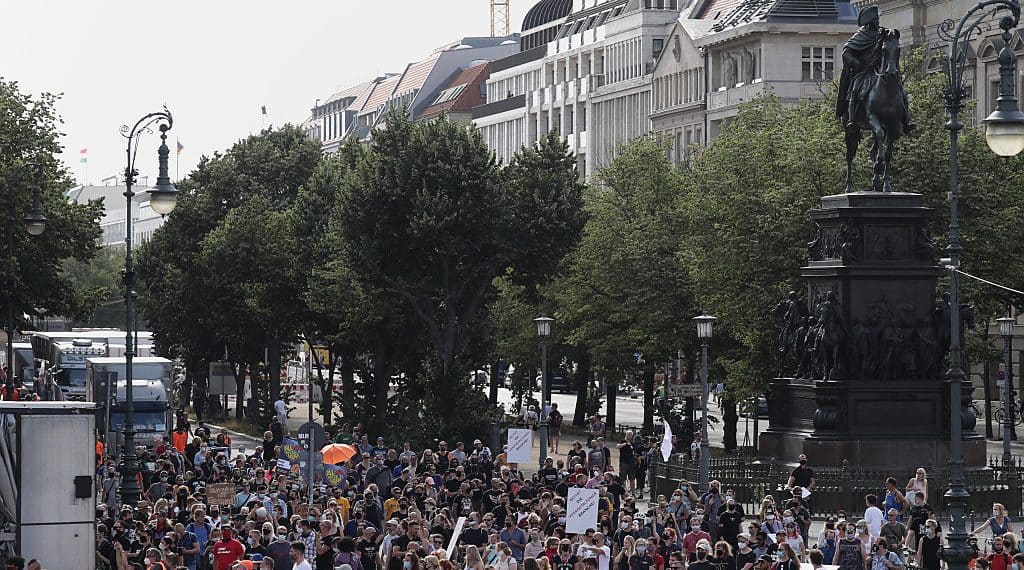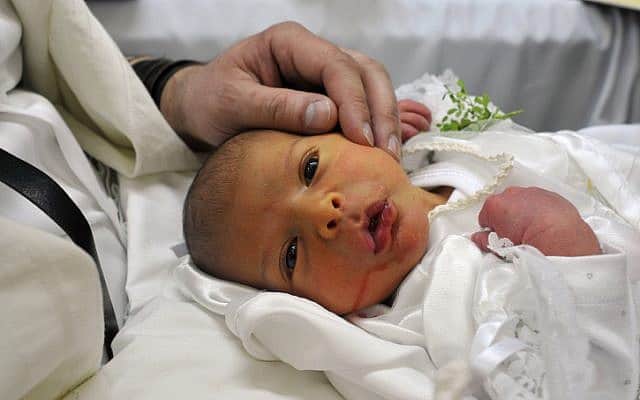Top European rabbi tells Israel Hayom a special center to monitor real-time incidents via remote feeds could be established in order to tackle anti-Jewish attacks.
The recent terrorist attacks in Austria and France, as well as the spike in coronavirus cases in Europe, has created a fear among Jews in the continent that anti-Semitic conspiracy theories blaming Jews for the spread of the pandemic could become mainstream.
A recent study in Germany showed that one in three Germans has somewhat of a conspiratorial view of the world.
Felix Klein, who is the federal commissioner for Jewish life in Germany and the fight against anti-Semitism, told Israel Hayom that the recent protests against the COVID-19 regulations have become fertile ground for anti-Jewish sentiment.
“The current protests against corona-related restrictions serve as a rallying point for antisemites, Holocaust deniers, and believers in conspiracy myths. At “hygiene protests”, participants downplay the Holocaust by, for example, comparing the current requirement to wear a face mask with the obligation to wear a Star of David during the Nazi regime,” he told Israel Hayom. “Portraying themselves as rebels – as do for example the supporters of the new political party Widerstand2020 (Resistance2020) and the Reichsbürger movement – is typical of adherents to anti-Semitic beliefs: Presenting oneself as breaking taboos, as ‘finally’ bringing the truth to light, as showing at last who is pulling the strings behind the scenes – and, as has been done for thousands of years, pointing their fingers once again at Jews,” he added.
When asked about the danger posed by such conspiratorial views, he noted that there is a concern verbal statements could eventually morph into action.
“Conspiracy myths also prepare the ground for violence, as history has shown. Those who perceive themselves as victims and feel threatened can themselves turn into a threat. Anti-Jewish pogroms throughout history have been the fatal consequence of such obsessive hatred of Jews, as have the antisemitic terrorist attacks worldwide in recent years,” he said. “A recent study has shown that radicalization online takes place four times faster than offline. That is what makes it so important to quickly adjust our laws. This is the thrust of the package of measures put forward by the federal government. I am confident we can achieve a lot through a combination of repression and education. After all, what is ultimately at stake is social cohesion in times of crisis.”
Meanwhile, Jewish groups have scrambled to deal with the threat of rising anti-Semitism in the age of coronavirus. The group “Concert – Together for Israel” strives to bolster Israel’s image and fight modern anti-Semitism, says its job has been made much more difficult in the wake of the pandemic, and many pro-Israel groups are facing potential elimination.
“Generally speaking, one can say that small organizations that rely on a small staff expect a slowdown and a long recovery, but the big organizations that need a large operation worry about their long-term viability in light of the added costs,” Nava Edelstein, the group’s program director says.
Rabbi Menachem Margolin, the head of the Brussels-based European Jewish Association that has led a comprehensive effort to counter anti-Semitism in Europe, told Israel Hayom that he has been overseeing a “virtual command center” that gets daily updates from Jewish communities on online anti-Jewish attacks.
“We constantly see how anti-Semitic voices on the web attribute the virus to a Zionist-Jewish conspiracy, on top over other forms of anti-Semitism that involve graffiti and vandalizing of Jewish institutions,” he said, adding the largest volume of reports originates in France, Romania and Belgium.
“We are considering setting up a center that would monitor events through Jewish communities’ video feeds in real time, so that we can alert security forces when such incidents happen,” he revealed.













